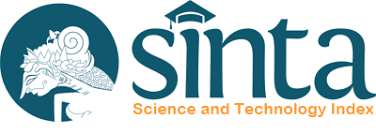Abstract
This study aims to test whether the behavior of Indonesian people in determining education is the manifestation of human capital theory or signaling theory. Using the ordinary least square (OLS) model and the Indonesian Family Life Survey (IFLS) 2007 data, we find that both theories mutually have effect to influence the behavior of Indonesian people to determine their education.
Bahasa Abstract
Studi ini bertujuan untuk menguji apakah perilaku masyarakat Indonesia dalam memandang pendidikan merupakan perwujudan dari teori human capital ataukah teori signaling. Dengan menggunakan model Ordinary Least Square (OLS) dan data Indonesia Family Life Survey (IFLS) tahun 2007, penulis menemukan bahwa kedua teori tersebut mempunyai pengaruh yang sama dalam memengaruhi perilaku masyarakat Indonesia dalam menempuh pendidikan.
References
[1] Arcidiacono, P., Bayer, P., & Hizmo, A. (2008). Beyond Signaling and Human Capital: Education and The Revelation of Ability (NBER Working Paper, 13951). Massachusetts Avenue: National Bureau of Economic Research. http://www.nber. org/papers/w13951.pdf (Diakses 12 April 2014).
[2] Bayhaqi, A. (2007). Education and Economic Growth in Indonesia (Doctoral dissertation). National University of Singapore. http://scholarbank.nus.edu.sg/ bitstream/handle/10635/23103/Dissertation% 20NUS-Akhmad%20Bayhaqi.pdf?sequence=1 (Diakses 12 April 2014).
[3] Becker, G. S. (1985). Human Capital, Effort, and the Sexual Division of Labor. Journal of Labor Economic, S33-S58 .
[4] Yen, D., & Kuzma, J. (2009). Higher IELTS score, higher academic performance? The validity of IELTS in predicting the academic performance of Chinese students. Worcester Journal of Learning and Teaching, 3, 1-7.
[5] Hanum, W., & Lasniroha, T. (2014). The Impact of Human Capital on Economic Growth "The Implication for Improving the Accessibility for Higher Education In Indonesia". Prosiding. Widyatama International Seminar, February 14-15, 2014. Universitas Widyatama.
[6] Kasri, R. A. (2011). Time Series Evidence on Education and Economic Growth in Indonesia. Economic Journal of Emerging Markets, 3 (2), 109-123.
[7] Kroch, E. A., & Sjoblom, K. (1994). Schooling as Human Capital or a Signal: Some Evidence. Journal of Human Resources, 29 (1), 156-180.
[8] Rinne, U. & Zhao, Z. (2010). Human Capital vs. Signaling: The German Reunification as a Natural Experiment (Preliminary Draft). Germany: Forschungsinstitut zur Zukunft der Arbeit GmbH (IZA). http://www.iza.org/conference_ files/TAM2010/rinne_u1844.pdf (Diakses 12 April 2014).
[9] Spence, M. (1973). Job Market Signaling. The Quarterly Journal of Economics, 87 (3), 355-374.
Recommended Citation
Fahmi, Mohamad and Mulyono, Yeni Oktavia
(2015)
"Pendidikan, Human Capital ataukah Signaling? Studi Kasus Indonesia,"
Jurnal Ekonomi dan Pembangunan Indonesia: Vol. 15:
No.
2, Article 1.
DOI: 10.21002/jepi.v15i2.01
Available at:
https://scholarhub.ui.ac.id/jepi/vol15/iss2/1







